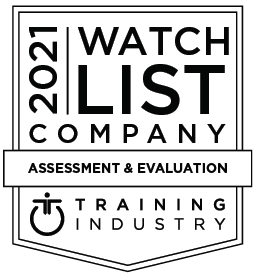It has never been easier to ask employees about what they think and feel and want.
New employee surveys. Annual surveys. Evaluations of specific training programs. Reviews. Virtual suggestion boxes. Short “pulse” surveys throughout the year. Exit interviews. These are excellent ways to tease out key information that you use to shape a company culture that encourages growth, rewards excellence, and draws the interest of top candidates. But too often all this inquiry fails to deliver on its promise.
Not listening in action
Here’s an example of how asking turns into not listening. A company has a retention problem. They do a survey to better understand why employees are leaving. What they learn is employees would like to work from home more. But the leadership team doesn’t see how that will fit into the productivity objectives of the company. Instead, they beef up the vacation policy thinking that will make employees happy.
Funny, right? How could this happen? The way our brains take in and process info isn’t as straightforward as we think. Everything we hear is filtered through our individual biases, assumptions, objectives, and needs—which shift our perception of what we hear or read. In the above scenario, the employees requested something very clearly from their perspective, but the brains of those making the decision considered what they heard through their own filters, which brought in other competing thoughts and intentions. This shifted their decision to recommend a solution more closely aligned with their internal needs rather than the needs of those making the request. The employees didn’t feel heard—because they really weren’t.
The solution to ensuring this type of scenario doesn’t happen in your organization is to, listen—really, really listen—to what your employees are saying. And while that sounds simple, it’s not. We’re taught to speak, read, and write, but not to listen.
Cultivate listening skills
We “hear “with our ears and we “listen” with our brains. Since no two brains are the same, no two people hear the same thing or interpret information in the same way. There are a few key aspects to improving your listening skills. The first is to understand your personal listening style that describes what information you pick up in conversation and what you may miss. You also need to be being aware of the individual biases, assumptions, needs, wants, and other filters your brain automatically applies to information it takes in. It doesn’t matter whether you’re having a conversation or taking in information via the written word. It works the same. Our brains are trained to seek and consider information from our own perspective—and go to great lengths to make what we interpret about what we hear or read syncs up with it.
The great news is that listening is a skill that can be taught. In just one day, our Listening Edge™ workshop can train learners to recognize their own, and others’, listening habits and adapt how they communicate accordingly.
Create a culture of listening
Listening is increasingly being recognized for its importance across companies in every industry. Building a listening culture starts at the top and is an effort that pays dividends in the form of more creative ideas, smarter questions being asked, and, of course, high marks on culture and engagement surveys.
Want to know more about how Mandel can help your company develop more effective listening skills? Whether you’re looking for large-audience training or more focused workshops for smaller teams, we’d love to talk to you about how we can help you build and sustain a culture of listening that transforms relationships, improves team performance, makes employees valued, and attracts top candidates.










